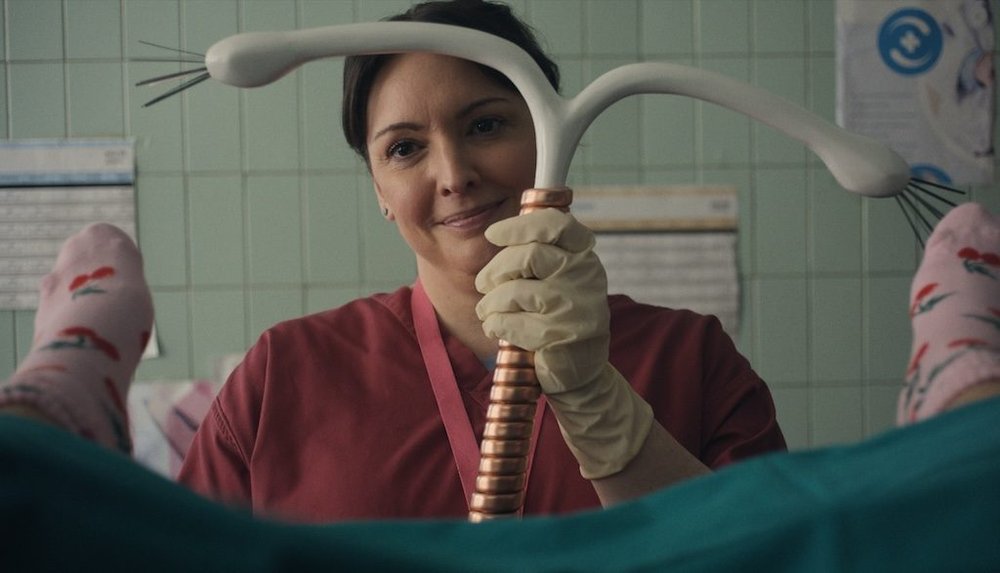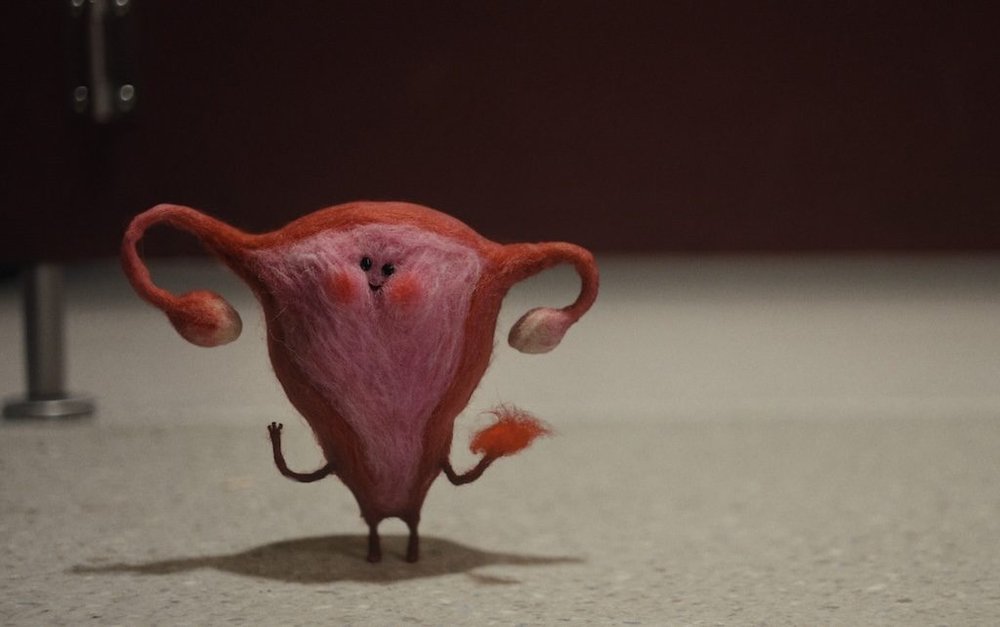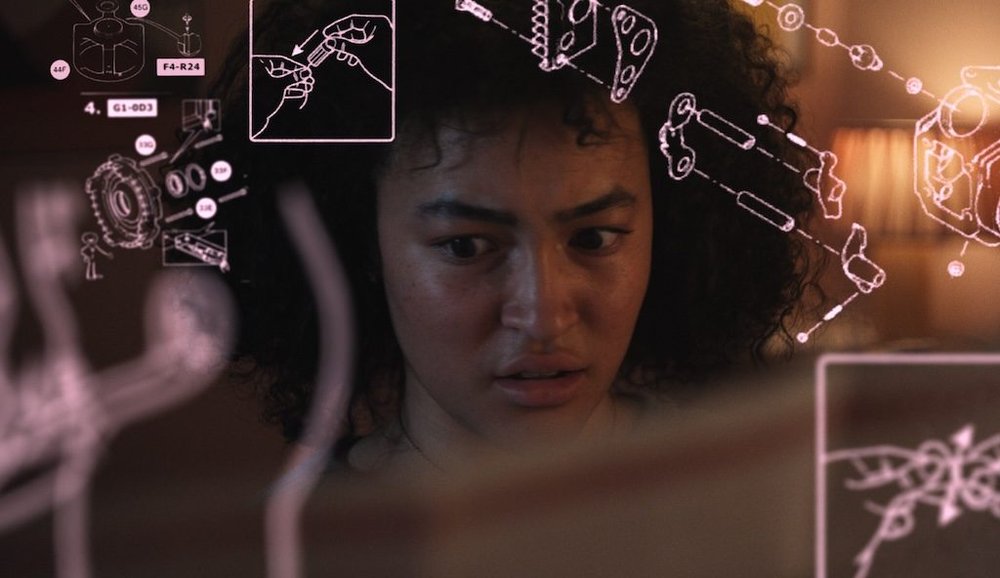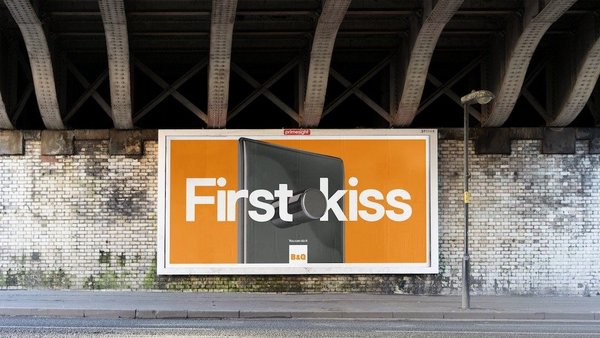Insight & strategy
The strategy behind Bodyform’s Never Just A Period campaign /
How a period care brand continues to build on its long-running platform, tackling education gaps, taboos and fears
On 1 August 2024, Essity-owned femcare brand Bodyform (also known as Libresse in other markets) launched a global campaign called Never Just a Period.
Aimed at highlighting the dissonance between what women are taught to expect, and the reality of their menstrual experiences, the campaign is led by a hero film that uses humour and mixed media to depict underrepresented experiences such as the pain of having a coil fitted and menstruating while breastfeeding. Throughout the film a female-only orchestra provides the music and reacts to the action in the style of a Greek chorus. The spot ends with the question, ‘What do you wish you’d been told?’
The campaign, directed by Lucy Forbes, through Smuggler, was created by long-time creative partner AMV BBDO, London, and inspired by the brand’s own research. Since 2020, Bodyform has been tracking the perception and prejudice of taboos globally through its Global V-Taboo Tracker (GVTT). Recently, the brand added to the research, gathering information from 10,000 people across 10 countries about all stages and dimensions of menstrual life.
The deeper listening has uncovered insights such as ‘more than half (59%) of those who menstruate wish they’d been taught more about their periods and intimate health’ and ‘90% of those who menstruate know little to nothing about perimenopause’ – revealing a serious knowledge gap.
The integrated campaign constitutes a diverse array of content, ranging from six seconds to two minutes, which will roll out across digital, social platforms and TV. In total, more than 100 unique assets were crafted for a multi-channel push.
To find out more about the insight and strategy behind the campaign, what has changed since we last caught up with the AMV BBDO team about Bodyform, and the challenges of refreshing a long-running creative platform, we spoke to CCO Nicholas Hulley, head of brand, Margaux Revol, and creative director duo Lauren Peters and Augustine Cerf. They told us:
- The team’s creative approach prioritises deep research and empathetic storytelling to resonate with the audience
- Bodyform’s commitment to education aims to address knowledge gaps through engaging and innovative content
- The campaign highlights diverse and underrepresented experiences to build emotional connections using a mix of humour and outrage
- Balancing consistent brand messaging with fresh creative executions is crucial for maintaining distinctiveness and relevance

It’s been two years since the #Periodsomnia campaign – what’s changed in that time? Have the goal posts moved?
Margaux Revol: There are two components. The first component is what has happened for the brand and the second component is culture – the category moving, people copying a lot of what we have been doing and why we needed to evolve creatively. With Periodsomnia, the bet was to try and hero the night [period] products, because it’s often a torture test for women – if it can do the most, it can do the least – and that could have a good halo effect on the [rest of the] portfolio.
Creatively, it was [about] shining a light on something you hadn’t seen like that before. It’s been working super hard for the brand. But the next challenge for us was that the portfolio of the brand in every single market is large, there are different types of products, including wearables... The question was, is there a way of landing a more total promise of what we stand for? Of what we offer women?
That informed the brief – and what you will see in the next few months, is a myriad of assets that cover a lot of the portfolio and product assets [all around] our promise to you [women] that we understand what you’re really going through.
Augustine Cerf, AMV BBDO
Nicholas Hulley: [Bodyform has] the double challenge of building a recognisable brand, a brand that appears to be consistent and have consistent components to it, while always being fresh creatively. That is a perpetual challenge, and it’s an exciting challenge. And what Lauren [Peters] and Augustine [Cerf] have been able to do is build on that consistency, that deeply empathetic, emotional, intuitive storytelling.
The colours, the mixed media, the emotional truth, the truth telling journey – [with] a fresh creative perspective. Culturally, you started to see regression everywhere you look. In America, there seems to be backsliding. And it gives you that cultural energy of ‘God, I can’t believe we’re still protesting this shit’.
And when you start thinking in those cultural ways, you start to see a historical perspective. You start to go, ‘Holy shit. It is unbelievable that girls still arrive at their first period and think they going to to die.’
Lauren and Augustine brought a melancholic humour, it’s a profound humour. It’s an outrage humour. There’s often a fire to the humour that adds to this cultural moment that we’re living in. To take Margaux’s brilliant thinking and distil the complexity down to a creative articulation of Never Just a Period, is amazing.
Augustine Cerf: When we started talking about what this shared, and also historical experience we all have is, we realised there were just so many things that we hadn’t known, and so many ways in which we’d been destabilised by this complete lack of knowledge throughout our lives. That is a very persistent thread across different people, but also across different life stages.
From your first period through to the perimenopause – most people don’t know that there are 48 symptoms of the perimenopause and most GPs don’t know it either! When we started sharing our stories, we realised two things. Firstly, that we share in this anecdotal way that often involves laughing through stuff instead of crying.
So we really wanted to bring in the way that humour makes things collective and makes things okay. We wanted that tonally to come through in the film. But also, that outrage – how does the GP still not know what the menopause is like? How are we still told that getting a coil implant is going to be a tiny pinch? That humour paired with outrage felt relatable and felt like a slight shift from where the brand has been before.

What was your key challenge?
Revol: It stemmed from an ambition to try and advertise Libresse’s entire portfolio and have a meaningful positioning across everything they do and offer, regardless of market. That was the specific marketing challenge.
We hit the ground running quickly once we were clear on the brief, because we already had so many insights into what’s happening. We are constantly sharing things that inspire us, things that piss us off, things that we think would be amazing, that have never been done. What just immerse ourselves in the insights, the anecdotal, the creative ideas, and how we can support it with research. It’s a constant back and forth that is informed by all our experiences, previous research, and future research.
Margaux Revol, AMV BBDO
Tell us a bit more about the research behind this campaign – which insights did you find most inspiring or profound?
Revol: The emotional response in the room when we started looking at the results was very ambiguous. We were both excited and absolutely depressed by what we saw. We were excited because we thought, okay, we are not crazy. We didn’t invent this. But simultaneously, we felt completely crushed by how depressing it was, that in 2024, the vast majority of women+ have had a lifetime of unanswered questions and low confidence in managing their bodies.
A few years ago, we started tracking the prevalence of taboos and prejudice with Libresse through our ‘Global V Taboo Tracker’ (GVTT). At the time, it was sort of a short list of the most fucked up things that people think of themselves or women’s bodies – prejudice around blood or period sex or discharge, or menopause, etc.
Our motivation [this time] was what would happen if we didn’t just refresh this study to track the evolution, but expanded it massively with an ambition to understand the correlations between your experience and emotions and behaviours and exposure to knowledge – and your prejudice and level of confidence around your body. So, instead of documenting a level of taboo in society, [we tried to] find root causes.
Margaux Revol, AMV BBDO
The key stats [include] that 60% of women+ feel like they’ve gone through their menstrual life with more questions than answers and are lacking confidence about their own bodies. Underneath that, there are a lot of insights and stats about how it feels to get to your first period if you haven’t been prepared, empathetically and practically.
For example, we found that only one in 10 girls felt proud at their first period, which feels insane, because if you think about the equivalent for a guy, shaving with his dad for the first time, or whatever, I’m imagining the level of pride would be much higher. We realised that the correlation was often that girls had not been prepared properly. Not just told that it’s happening or it’s coming, but being taken through it with empathy and practical explanations about products.
That’s also why you see in the execution kids playing with products and doing arts and crafts – that was one of the penny-dropping findings. Unless you have a practical education, you will be unsettled by what’s happening to you and how to handle it. For something that is 100% going to happen to you, there is so little preparation. For me, these were the highlights.
Augustine Cerf, AMV BBDO

Lauren Peters: Quant and qual research was a big component, but also so much, because it’s such a shared experience, came from anecdotal sharing and insights that were gleaned from us having conversations. That formed the bedrock of the campaign and then research was layered into that. The director came with her own experience as a mum with two kids, and the actors themselves, brought] their own experience to the screen, whether it was endometriosis or being a mum. It was this multifaceted amalgamation of insights all gleaned from different places.
Augustine Cerf: We wanted to make sure that the experiences we were representing were the ones that were the least talked about, that we hadn’t touched on before, that we hadn’t seen on TV anywhere. Like the fact that you can have your period while you’re breastfeeding. Nobody talks about that. And everybody who experiences it usually has to learn it as it happens to them. What are all those experiences that you don’t see and therefore you learn about them when they’re literally happening to you? Like having a coil fitted.
Now we’re starting to see some news stories about how painful it is, which is really heartening, but it takes a really long time. Another thing we wanted to show is discharge. Lauren and I are obsessed with putting discharge on TV, so we’re happy that there are lots of mentions of discharge. Discharge is something that you just don’t really talk about – you find out about it when you see it in your underwear. The same with huge perimenopausal clots. We made sure the insights that we were mining were things that are very universal but not talked about.
Peters: It’s about the meaningful representation of those things as well – it’s not just a tick box exercise. Showing discharge, okay, but what are the experiences around discharge that then we can dig into.
Nicholas Hulley, AMV BBDO
As competitors have begun to mimic Bodyform campaigns and tackle taboos, how do you make sure your work is distinctive and maintain your position as the leader in this area?
Hulley: There are two guiding principles. We have a creative job to do – to persuade, to use creativity, to be storytellers – which is married to a belief that we are not on a conquest of planting flags. We are not in the business of finding taboos and ticking them off. We’re in the business of creativity, and we’re in the business of truth-telling, of going deeper than everybody else, being outstandingly meaningful to people, and doing it in the most creative, surprising, empathetic way.
Peters: The craft and mixed media is not just superficial. It’s not just a representational job. It’s making sure that we have the most visceral display of these feelings as possible. That’s a key pillar to Libresse specifically.
Cerf: What Libresse does really well – and Womb Stories did this so well – is taking women’s emotions very seriously. Women’s emotions are dismissed as pointless and hysterical, but actually they contain a lot of truth. So a lot of the craft is about the emotional truth of how this feels, and giving that a platform and taking it seriously as a big emotion that is real, to counter all of the minimisation that happens.
Margaux Revol, AMV BBDO
With each new campaign, has it been harder to find new ways to execute or new things to say?
Peters: While there are consistencies across the various Libresse campaigns in terms of telling the truth about women+ bodies, executionally there are always differences. The common denominators are not always the same. In this case, it was about historic injustice. It was about the minimising. That was a different jumping-off point from Periodsomnia and different from Womb Stories.
Cerf: There are different tonal ways into these experiences. Viva La Vulva was really fun and was a song. And then Womb Stories was heartbreaking and moving. We all experience our bodies in these different ways, so there’s value in all these different tones. So we’re pivoting tonally here to outrage and humour and tackling systemic injustice. That also helps to differentiate [the campaigns].
Revol: When it comes to finding new angles, the way we keep looking at this is, this is a story of relationship we have with our bodies. So it can be as rich as you want, because the personal experiences are so vast, but I think the game is always to find a universal truth that is going to bring people together.
One element that you see in every single campaign is a sense of collective and solidarity. Because a lot of [experiences] are traditionally not shared, and make you feel like maybe you’re the only one going through this weird thing. What we are constantly trying to do, whatever story we’re telling, is make people realise they’re not the only ones experiencing something.
Even if Viva La Vulva has this batshit crazy energy to it, it makes you realise you’re not the only one who has what you thought was weird-shaped anatomy, and you’re allowed to reconnect with it. It’s about the door you’re going to open in people’s minds that they have never realised was there. It’s not just, let’s cherry pick some cool things people haven’t seen before. It’s about an insight into a relationship with our bodies, that people will [recognise].
Peters: But also, real talk, certainly from a creative point of view, it is hard. Every time you get brief, it feels like you’re never going to have an idea, and where can you go next? Particularly with such a rich, beautiful, meaningful heritage, with [a brand] like Libresse. It doesn’t come overnight.

Tell us about the rollout of this and the practical steps you’re taking to close that education gap.
Revol: The first thing is a real investment and commitment to better research when it comes to girls and women+, and understanding what they’re going through. GVTT is part of that. The other side of this commitment is, in every single market, the brand has been trying to educate women and girls. They estimate that [through] joint efforts, they’ve helped 45 million kids to understand their periods and their menstrual cycles better. That doesn’t mean that they’re resting on their laurels. They are looking into partnerships to bring this to the next level.
Every market is going to launch in the next few weeks, the UK was first, France is next, several dozen markets are launching the overall campaign. It’s a bit of a beast of a toolkit with a lot of purpose assets, longer and shorter teasers, a lot of more in-depth content based on the insights and the stats, and tailor-made assets that are about [topics such as] having heavy periods, or that you might have a sensitive vulva after giving birth. We’ve played a lot with that promise of ‘protection that really understands’ – that’s the common denominator to all of our product assets.
Peters: The question at the end of the film is also really important as part of the launch: what do you wish you’d been told? It really is trying to encourage people to share their own experiences of what they wish they were told. And that kind of stuff is always really useful data to feed back into this project and future projects as well.
Want more of the same? /
We don’t just write about best-in-class campaigns, interviews and trends. Our Members also receive access to briefings, online training, webinars, live events and much more.








